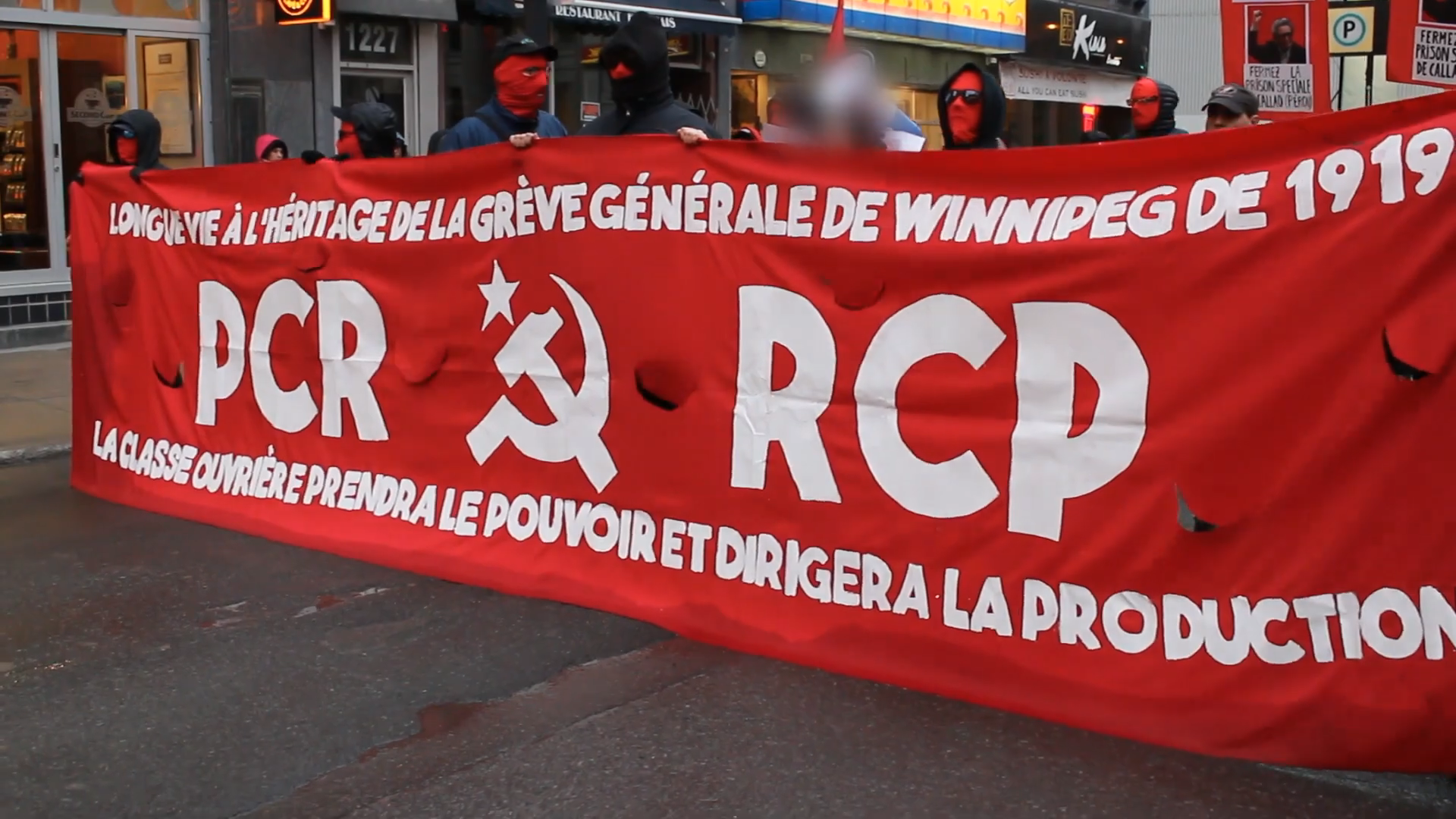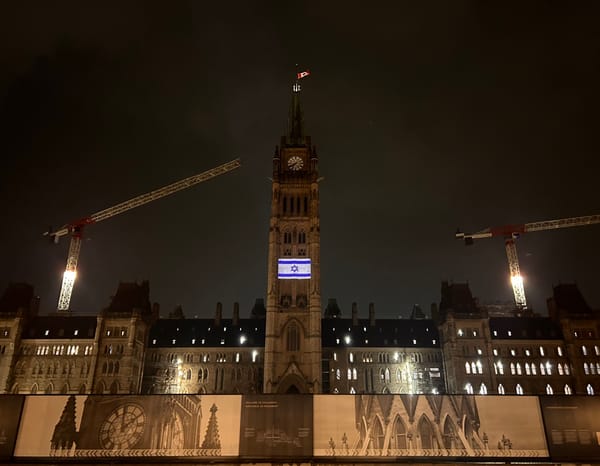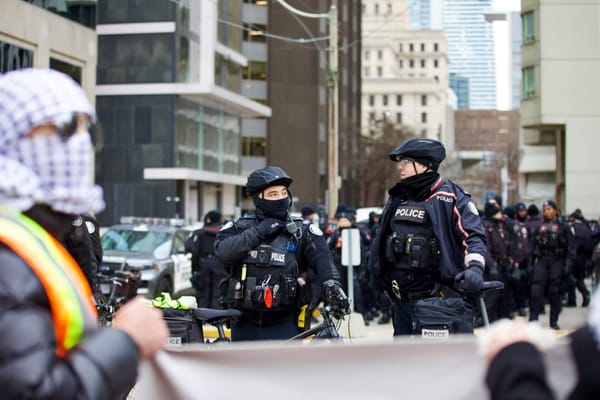This article is the third in a new Passage series exploring different leftist approaches to electoral politics. The first article made a case for an anarchist approach. The second article made a case for Ralph Miliband’s approach.
How should leftists approach electoral politics?
I’m a Marxist-Leninist-Maoist (MLM), which is an ideological tendency that was codified by the Peruvian Communist Party (PCP) and the Revolutionary Internationalist Movement throughout the ’80s and ’90s, and is influential in India and the Philippines today. The MLM movement builds on existing Marxist theory by incorporating insights gleaned from the Chinese revolutionary experience, particularly the Cultural Revolution, and the later defeat of socialism in the country.
Over the last decade, the answer from MLMs in Canada to the electoral question has been to organize boycotts.
In 2015, the Revolutionary Communist Party of Canada (PCR-RCP) released a statement titled “Boycott the Capitalist Election! Fight for People’s Power!” arguing “the real objective of this election is no different than the ones that came before it: to decide which team will administer the Canadian state—the state of the capitalists, the rich and the powerful, a colonialist, imperialist and reactionary state.”
The party added, “This state, which itself is part of a whole system, has always and continues to serve the interests of those who hold the real power—the big capitalists. This will continue, no matter what politicians say when they seek our support and try to convince us that everything will be decided at the polls.”
On some levels, boycotts make sense. For example, in 2019 I argued that by voting, a person both consents to the existing arrangements of power and believes that their interests are in line with it. Boycotts, ostensibly, say the opposite.
Some interpret low voter turnout as proof that a “passive boycott” actually is already happening, whereby a large strata of the population has recognized that elections aren’t for them, but rather for their landlords and bosses (although it’s unlikely if such a thing does exist that it represents an overwhelming desire for the end of Canada as Canada.)
Yet there are also many issues with boycotts, and in recent years, amid various splits in the MLM movement, there has been much discussion of their effectiveness.
To start, boycotts help constrain politics by defining them as being in the negative, against things, rather than in the positive with a definite emancipatory vision. Without this vision, there can be no coherent alternative presented. Boycotts, including ones in the form of not voting or spoiling ballots, also have no meaning outside of the individuals participating, and have no impact on outcomes.
The only way this wouldn’t be the case was if communists in Canada already held significant power in some way, which for MLMs would ideally be in the form of revolutionary territories or base areas. This would make a boycott meaningful, because it would be able to play an important role in delegitimizing the bourgeois electoral process, and indicate that there’s an actually existing alternative power to that of the state. To effectively contest the legitimacy of a power structure, there needs to be a viable contender.
At the height of their people’s war in 1990, for example, the PCP boycotted the Peruvian elections, contesting the legitimacy of the state from a position of power — the party controlled large territories and commaneed armed fighters. It goes without saying, though, that the conditions in Canada are far different.
Elections, Then?
So, if leftists aren’t going to boycott elections, but do see the futility of them at this point, what should our response be? I’ll start by exploring what it shouldn’t look like: the Marxist-Leninist line, best represented here by the Communist Party of Canada (CPC), which advocates for taking part in electoral politics in some form.
Marxist-Leninists often justify running in elections by citing Vladimir Lenin’s 1920 book Left Communism: An Infantile Disorder, in which he argues that communists of Britain should support the Labour party and take part in the electoral process. Lenin saw that there was a significant working class movement taking shape in the country that did not yet have a unified party. Should Labour form government, he believed, the masses would be disappointed in its performance, realize the limitations of parliament and turn to communism.
The argument would be compelling if the CPC had the same status as a social force in Canada today as the communists had in the United Kingdom 100 years ago. Or, frankly, even the status that the CPC themselves had in Canada in the ’40s. Admittedly there are some similarities between conditions, as Canadian workers have not yet seen a federal NDP government. Yet we have been constantly disappointed by provincial ones, and Canadian workers have not turned toward communism en masse.
Gone are the days when communist parties swelled with enthusiastic workers — they’re now more akin to a small faction within a large array of NGOs. The CPC, for example, has consistently earned around 0.02 per cent of the popular vote in every federal election since 2000, in which they earned 0.07 per cent. Whether such performance is worth abiding by the constraints imposed on a registered party — not to mention the security risks of disclosing leadership, membership and supporters to the state — remains to be seen.
Another argument made recently in Passage by Robert Hiltz (not a CPC member) is that the party knows it will not win power, and that it runs “for its own sake,” as well as for getting radical ideas on the agenda of other parties. The argument feels more like a justification for continually reproducing a party that has no purpose other than to reproduce itself.
Even if communists were to somehow get power, there would still be many problems. Karl Marx, for example, famously argued that it’s impossible to take hold of ready made state machinery and use it toward ends for the oppressed masses because of how disastrously it ended in Paris in 1871. A more recent, and perhaps the most painful, example of the truth in what Marx wrote was the fall of Chilean President Salvador Allende, who came to power through elections, to the fascist dictator Augusto Pinochet.
Today, neither the police, military, nor even the central bank and courts are under democratic control. Parliament is only one of many ideological state apparatuses, and its power hinges on the economic stature of the ruling class. Parliament can’t stand on its own, and the NDP’s times in power, which were promised to be different than when other parties took office, have just delivered continued neoliberalism, further underscoring the limits of elections.
Daring To Struggle, Daring To Win
The fact of the matter is that communists aren’t yet a significant enough social force to confront Canadian settler capitalism either within the state itself — taking hold of ready-made state machinery through elections — or by turning away from the state as in boycott campaigns intended to delegitimize them.
Instead, what communists need to do is struggle to create a vanguard party that can lead the working class and colonized masses, and take up the task of building the apparatuses needed to wage revolutionary struggle. Such a party needs to be underground, developing a united front through public mass organizations and alliances — not bound up in a strategy that relies on sparsely attended rallies and speaking events
Communists should be engaging in the same “door-knocking” level of engagement that happens in elections at all times — going among the people, learning their problems, concretely analyzing them and then launching campaigns. As Mao Zedong wrote, “to investigate a problem is to solve it.”
We should be forcing campaign issues and platforms through our own organizational strength — with highly visible occupations, strikes, mutual aid networks and militant anti-fascist coalitions. Reforms are concessions to be fought for, not freely consented to by the state because of votes.
Our only task is to build a united party. Let’s go, we have a world to win.







Member discussion